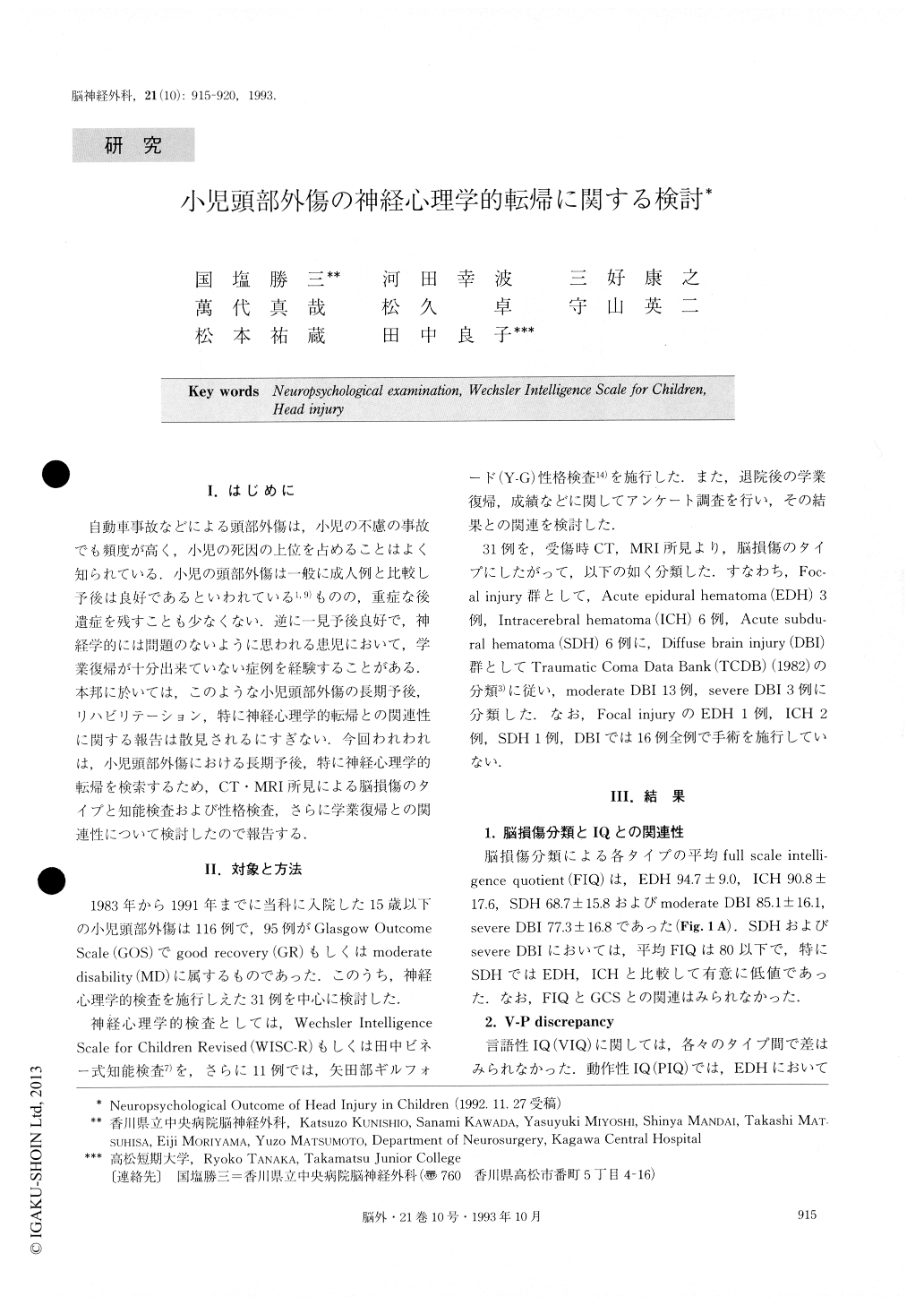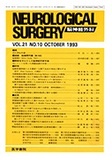Japanese
English
- 有料閲覧
- Abstract 文献概要
- 1ページ目 Look Inside
I.はじめに
自動車事故などによる頭部外傷は,小児の不慮の事故でも頻度が高く,小児の死因の上位を占めることはよく知られている.小児の頭部外傷は一般に成人例と比較し予後は良好であるといわれている1,9)ものの,重症な後遺症を残すことも少なくない.逆に一見予後良好で,神経学的には問題のないように思われる患児において,学業復帰が十分出来ていない症例を経験することがある.本邦に於いては,このような小児頭部外傷の長期予後,リハビリテーション,特に神経心理学的転帰との関連性に関する報告は散見されるにすぎない.今回われわれは,小児頭部外傷における長期予後,特に神経心理学的転帰を検索するため,CT・MRI所見による脳損傷のタイプと知能検査および性格検査,さらに学業復帰との関連性について検討したので報告する.
Wechsler Intelligence Scale for Children-Revised(WISC-R) and Yatabe-Guilford personality test were administered to 31 children who had been hospitalized for head injury and made a GR or MD by the Glasgow Outcome Scale (GUS). The type of lesion, as defined by CT scan categories, was an important factor to prognose the outcome of intellectual function. The IQ, especially performance IQ, of acute subdural hematoma (EDH) or severe diffuse brain injury (DBI) was lower than that caused by other types of lesion. Several children demon-strated improvement in IQ level during the initial year.The difference between the IQ of the children who could return to previous school life and that of the children who could not was significant. One of the causes of diffi-culty in returning to previous school life is decreasing IQ and personality change such as social disadaptability. Neuropsychological evaluation is important in predict-ing school recovery and deciding proper neuropsycholo-gical rehabilitation.

Copyright © 1993, Igaku-Shoin Ltd. All rights reserved.


